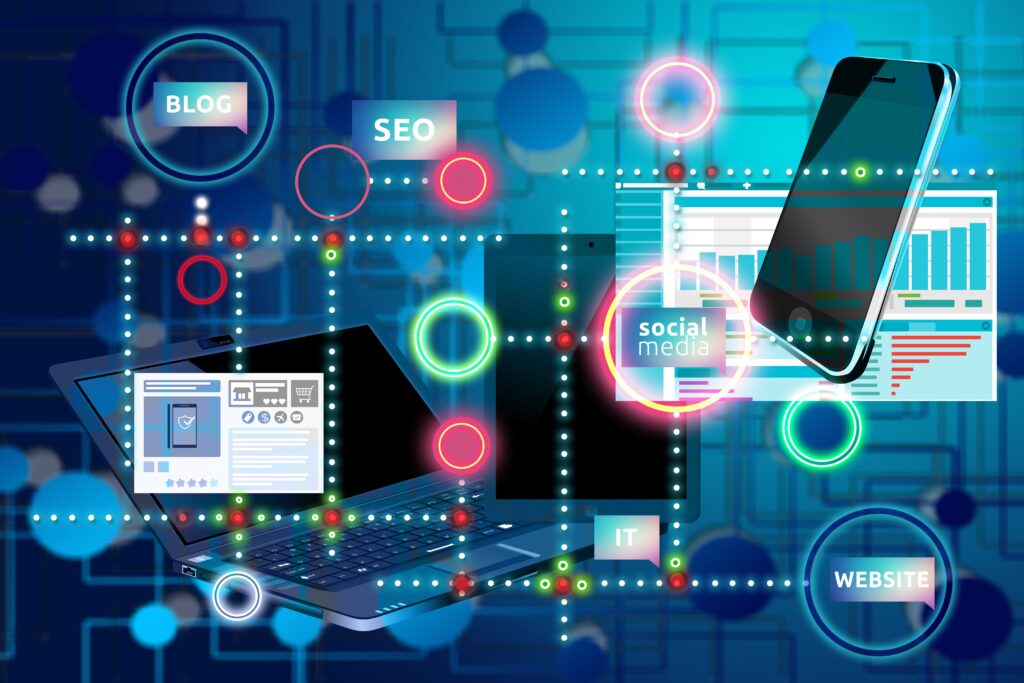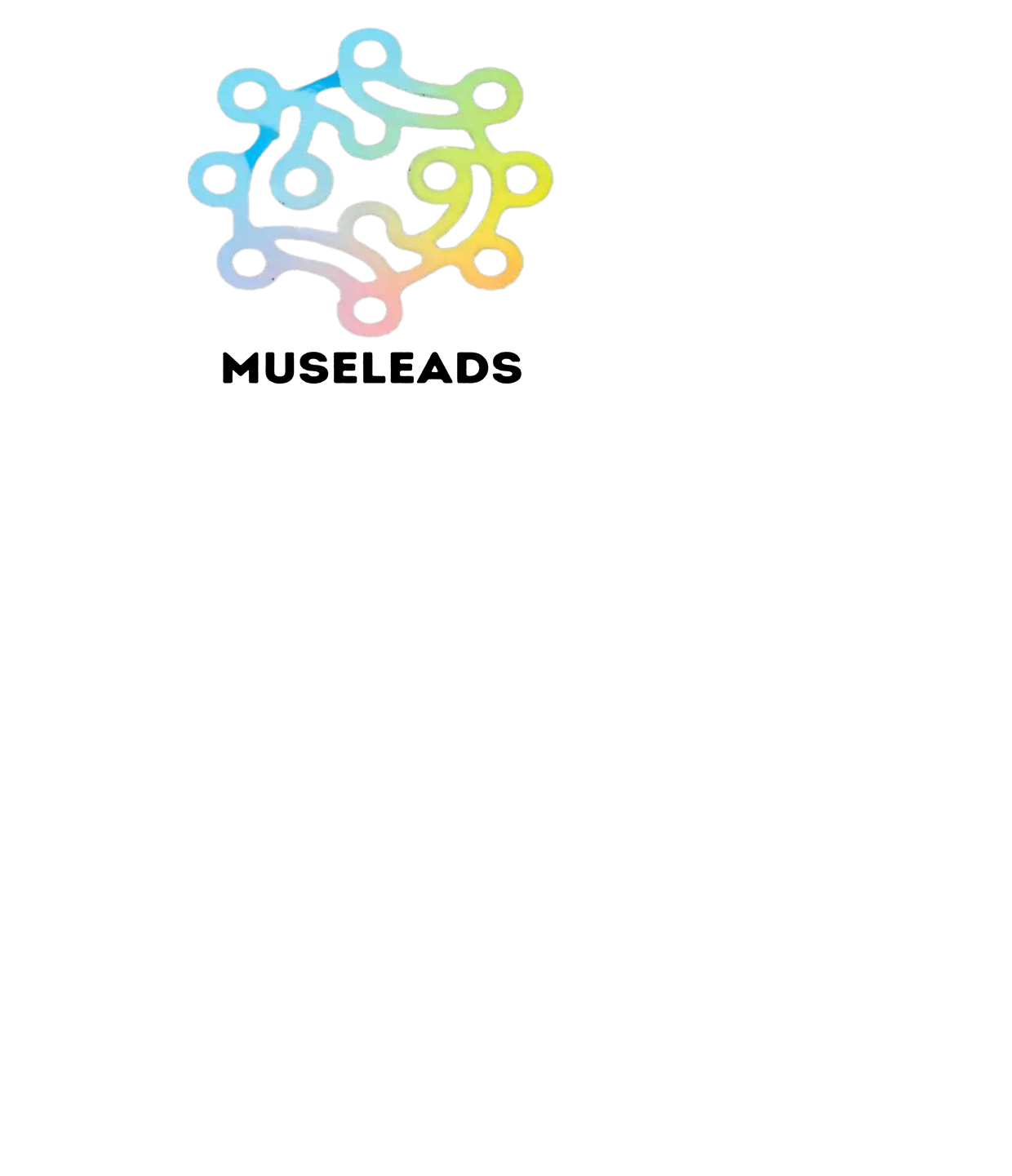What is Digital Marketing?

Digital Marketing also referred to as online marketing is the act of promoting your goods and services through digital channels, including websites, mobile devices, and social media platforms like Facebook, Instagram, Youtube, etc.
The goal of digital marketing is to reach potential customers in a more targeted and personalized way than traditional marketing methods. By using digital marketing, businesses can create a two-way conversation with their customers, build brand awareness, and increase their sales.
In today’s digital age, having a strong online presence is essential for any business to succeed. With so many different digital marketing strategies and tools available, it can be overwhelming to know where to start. That’s why we’ve created the ultimate guide to understanding digital marketing. From SEO to social media, content marketing to email campaigns, we’ll break down the most important concepts and tactics to help you understand the complex world of Digital Marketing. So, let’s dive in and unlock the secrets of digital marketing.
Types of Digital Marketing
There are 7 big categories of digital marketing:
- Search Engine Optimization (SEO)
- Search Engine Marketing (SEM)
- Content Marketing
- Social Media Marketing (SMM)
- Pay-per-click advertising (PPC)
- Email Marketing
- Affiliate Marketing
Although WhatsApp marketing, SMS marketing, and all other forms of marketing that involve digital channels come under digital marketing.
Importance of Digital Marketing
Digital marketing has become a crucial component of corporate growth and success in today’s technology-driven society.
Everything in the world today is digital. For example, if you want to eat ice cream, you have got two choices: go to the location you already know serves wonderful ice cream or search for the places which have the best ice cream. Let’s say that you are new to that place then what will you do? You will search on Google And whatever results Google showed you at the top you will assume that is the place with the tastiest ice cream. Nowadays, the internet is the primary source of information, therefore if you can rule the digital sphere, you may connect with the entire world and eventually build your brand.
Brands can use digital marketing to promote their goods or services and connect with their target market. Although a traditional marketing campaign also aims to achieve that, digital marketing enables firms to focus on a more specialized or niche market. By interacting with customers online, you can gain the trust of a larger audience.
Your customers, targeted customers and competitors are all online, and they are looking for businesses like yours. The likelihood is that they will see your competitors if they can’t discover you. If your business does not have a website and internet exposure, you run the risk of losing consumers. In conclusion, being online is crucial, and not just being online is enough. You have to make sure that you are visible to your target audience because it is said “What catches the eye, makes the buy“.
In digital marketing, the market is an even playing field. It follows that a new business will have the same opportunities as an established one. And for this reason, the business that truly does well typically prevails.
Advantages of Digital Marketing
1) Cost-effective than Traditional Marketing- Digital marketing frequently provides a more affordable alternative to traditional marketing strategies. Digital marketing platforms like social media, email marketing, and search engine optimization (SEO) offer cost-effective advertising solutions, making them available to companies with different budgets.
2) Targeted Marketing- Digital marketing enables businesses to target specific audiences based on demographics, interests, behaviors, and more. This targeted approach ensures that marketing efforts are directed towards the right audience, increasing the chances of engagement and conversion.
3) Measurable Results- With digital marketing, businesses can track and measure the effectiveness of their campaigns in real-time. Various analytics tools provide insights into website traffic, engagement rates, conversion rates, and more. This data allows businesses to evaluate their strategies and make data-driven decisions for optimization.
4) Brand Building and Awareness- Digital marketing enables businesses to build and strengthen their brand presence. Consistent messaging, quality content, and engaging experiences across digital channels help in creating brand recognition and increasing brand awareness among the target audience.
5) Increased Reach- Digital marketing allows businesses to reach a global audience. With the internet and digital platforms, businesses can expand their reach beyond geographical boundaries, reaching potential customers from different locations.
6) Compete with Larger Brands- Even if bigger organizations and well-known brands have enormous daily budgets for marketing, tiny businesses can still compete with them. They may increase their audience and exposure in search engines by strategically allocating their marketing efforts, such as through effective SEO methods, ongoing social media initiatives, and a solid content marketing strategy. Google will prioritize those with relevant material that matches search intent over those with larger budgets.
7) Better Customer Connection- Digital marketing plays a crucial role in fostering better customer relationships. Digital marketing channels such as social media, email, and live chat enable businesses to communicate directly with customers in real-time. This direct interaction allows for prompt responses to inquiries, addressing concerns, and providing personalized assistance. Customers appreciate the convenience and speed of communication, leading to enhanced satisfaction and stronger relationships.
Digital marketing provides opportunities to collect customer feedback and conduct surveys easily. Businesses can leverage online reviews, ratings, and social media comments to understand customer opinions, preferences, and pain points.
Digital Marketing Vs Traditional Marketing
In the ever-evolving world of marketing, a fierce battle is being fought between two giants: digital marketing and traditional marketing. Both strategies have their own unique strengths and weaknesses, leaving marketers and businesses questioning which approach reigns supreme. Traditional marketing, with its long-established methods such as print ads, radio spots, and television commercials, has been the go-to strategy for decades. However, the rise of digital marketing has brought a whole new set of opportunities and challenges to the table. With its emphasis on online platforms, social media, and data-driven insights, digital marketing has rapidly gained popularity and transformed the way businesses connect with their target audience.
The channel via which a target audience is exposed to a marketing message is the key distinction between digital and traditional marketing. Digital marketing employs digital media, such as social media or websites, as opposed to traditional marketing, which uses traditional media, such as magazines and newspapers.
Some common traditional marketing methods include –
- Tv commercials
- Radio Commercials
- Magazines
- Newspapers
- Billboards
- Flyers and posters
- Tele-marketing
- Direct mailers, coupons
| Basis of Comparison | Traditional Marketing | Digital Marketing |
| Meaning | The advertising of goods and services via media such as television, the phone, banners, broadcasts, door-to-door sales, sponsorship, etc. | The marketing of goods and services via electronic or digital channels, such as PPC, SEO, and SEM. |
| Cost-effectiveness | More Expensive Less effective | Less Expensive More effective |
| Engagement | Low | High |
| Reach | Local | Global |
| Investment Returns | Not easy to measure | More simpler to measure |
| Targeting | Standardized | Customized |
| Time | A company’s choice of traditional marketing approaches for market analysis results in weeks or months of waiting for results. | Digital marketing produces rapid outcomes, making it simple to obtain real-time marketing results. |
| Tweaking | The advertisement cannot be changed once it has been posted. | An advertising can be changed even after it has been posted. |
| Results | Slow results | Live results |
 seolounge
seolounge